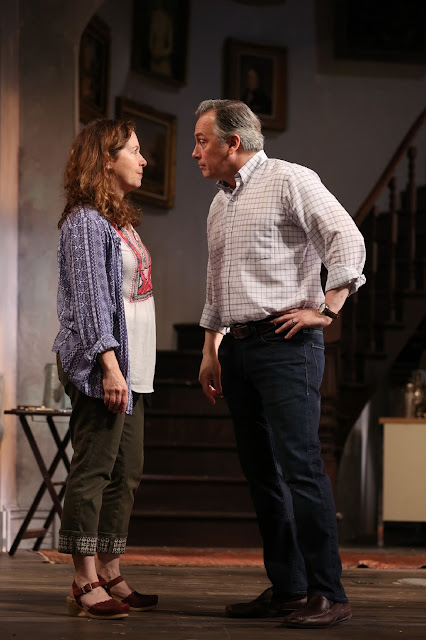There have been
few musicals that have celebrated Broadway’s greatest hits. The last show to be produced was the 1989
Tony Award winning Jerome Robbins
Broadway. While spotlighting the
innovative and creative output of the renowned choreographer there was also a
cavalcade of songs from such musicals as The
King and I, On the Town, High Button Shoes, and Peter Pan.
This past week
another greatest hit package opened on The Great White Way. The
Prince of Broadway, a marvelously entertaining musical, featuring a very talented
musical theater cast, presents moments from shows produced or directed by the
legendary Hal Prince. [Trivia Question answer—Mr. Prince has won the most Tony
Awards in history at 21].
With dozens of
productions to his credit—beginning with Damn
Yankees in 1955 through Lovemusik in
2007, there were many selections to choose from for the show. The show is highly represented by the works
of Stephen Sondheim (six) and includes such crowd-pleasing numbers as “Heart”
from Damn Yankees, “Tonight” from West Side Story, “Send in the Clowns”
from A Little Night Music, and “Don’t
Cry for Me Argentina” from Evita.
There is a very
loose chronological order to the scenes.
Almost all of them are introduced with factoids written by librettist
David Thompson. The songs can be rousing
(“If I Were a Rich Man” from Fiddler on
the Roof), heartfelt (“Ol’ Man River” from Show Boat), comedic (“You’ve Got Possibilities” from It’s a Bird, It’s a Plane, It’s Superman),
and dramatic (“Music of the Night” from Phantom
of the Opera).
While there is no
question about the entertainment value of this thoroughly enjoyable show, it
does suffer, slightly, from the lack of a compelling storyline to help keep the
audience’s attention continuously focused at a heightened level.
My one quibble
with the show is the song selection. It’s
a pointless discussion to have since everyone will have their favorites but,
with that said, I would have preferred more variety, less Sondheim. Maybe something from Baker Street or On the
Twentieth Century or Flora, the Red
Menace could have been included.
The cast, filled
with Broadway musical veterans and some newcomers, is superb. Their level of artistry and professionalism
is outstanding. If I had to choose a few
standouts—and this in no way minimizes any of the other actors and actresses—I would
single out three. First, Karen Ziemba,
who so beautifully performs one of my favorite songs from Cabaret with the wistful “So What” and gives a winning comic turn
with “The Worst Pies in London” from Sweeney
Todd. Second, is Tony Yazbeck who
has the lone dance number of the show, delivering a blistering routine to “The
Right Girl” from Follies. Lastly, is Bryonha Marie Parham whose
powerhouse vocals in songs from Cabaret and
Show Boat resonate powerfully
throughout the Samuel J. Friedman Theatre.
Directors Susan
Stroman and Hal Prince have rendered beautifully conceived vignettes that
showcase the vocal talents of the performers.
They skillfully and adroitly keep the flow of the show constant, crafting
a well-paced rhythm to the work. The
scenes are handsomely dressed up with unpretentious, but effective scenic
designs by Beowulf Boritt that convey the settings without being intrusive or
overwrought.
As choreographer,
Stroman shines with the tour de force number from Follies. Disappointingly,
there are no other songs with captivating dance routines. A few more would have added variety and zip
to the overall production.
The Prince of Broadway, an engaging and
finely-tuned tribute to one of the legendary showman of Broadway.
















